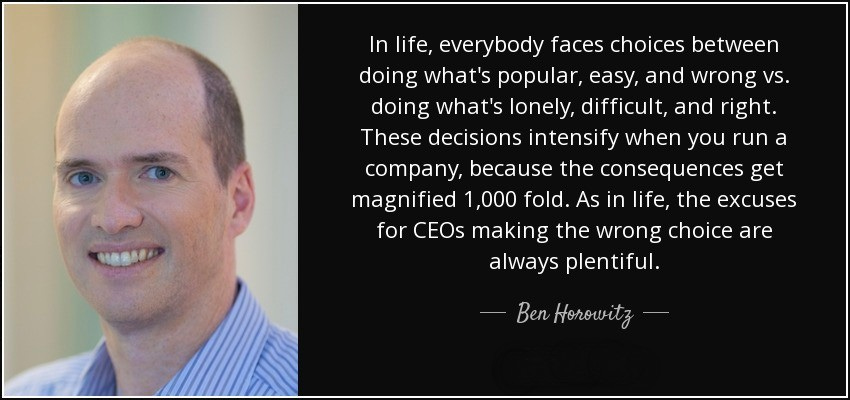Exit Fuel 🛢️ exists because of the support of people like you. Please consider subscribing (for free) or sharing with a friend or two if you feel as though you derived some value here.
“He who cannot obey himself will be commanded. That is the nature of living creatures.” - Friedrich Nietzsche
There are certain aspects of humanity that are a constant throughout both time and space on this spinning rock. One of the most interestingly pervasive shared characteristics of the human experience is the conscious acceptance of doing things we know do not serve ourselves in the pursuit of our most virtuous form(s). These choices span the gamut from small and insidious, such as spending a bit too much time scrolling the bird app, to large and detrimental, such as abusing pharmaceuticals or hard drugs. Regardless of where along the scale one’s choices in this regard may lie, we all make these types of decisions consistently, all the while knowing that we could, and should do better.
Awareness of this fact eventually leads to an interesting thought experiment: Why do we, as the most sentient beings on this planet, allow ourselves to take these courses of informed negative action time and time again? In my humble opinion the answer is simple — while humans are exceedingly cognizant in most cases, we are also increasingly hedonistic at an alarmingly rising rate, especially considering the last few decades. Many of us, whether we are aware of it or not, continue to suckle at the dopamine teat because society at large has convinced our subconscious that pleasure should be our highest ambition. Not only is this not the case in the slightest, but this pernicious line of thinking is currently contributing to the crumbling of progressive society in the most Romanesque of ways.
There are likely many of you who are reading this right now wondering if I am advocating for a life without gratification. I absolutely am not. Instead, like the many of the great Stoic thinkers of bygone ages, I truly believe that pleasure must follow virtue, as a life without balance in this respect becomes a hollow simulacra of what it actually could be. In the pursuit of pleasure and pleasure alone, you are enslaved to its presence and without it, can easily be consumed by an enveloping darkness that pushes even the strongest willed into the deepest of chasms. It is both interesting and telling how in the modern day this idea could be contentious, especially given that the world’s greatest philosophers of eras past all deeply believed deeply in these tenants. The Stoics, the Buddhists, the Islamics, the Judaics, the Taoists, all came to their own independent conclusions that living as close to their most principled form was the key to a life well lived.
“It is the nature of the wise to resist pleasures, but the foolish to be a slave to them.” - Epictetus
Monkish Behavior
If you have been on Twitter at all within the last few years, you may have come across an increasingly popular phenomena where young men and women are making the outward statement that they are “entering monk mode”. ‘Monk mode’ (or ‘nun mode’, in an effort to not be canceled), simply put, is a period of time where increased discipline, focus, productivity, and living with intent is prioritized with the express purpose of committing oneself to a goal. This paradigm is often characterized by isolation, self-improvement, and an abstinence from dopamine based distractions that would otherwise lead one away from their most meaningful purpose. When someone tells you that they are in ‘monk mode’ they are no longer choosing what feels best for themselves, but rather, sacrificing readily available carnal pleasures in exchange of a heightened level of devotion to the pinnacle of their own manifest destiny.
As one might expect, this model is a derivative of Christian Monasticism, which saw its genesis in approximately 300 A.D. when Christian men began to adopt hermetic lifestyles — living in solitude deep in the wilderness, in order to intensely improve their own focus on their spiritual journeys. Eventually as time passed and these hermits increasingly came into contact with one another, solitude was forgone for small communities (monasteries), where groups of these hermetics would band together to collaboratively practice asceticism - a lifestyle characterized by the abstinence of sensual pleasures. The ascetics of the time believed that one should choose to adopt a frugal life, distinguished by a renunciation of material possessions and physical gratifications, all in the pursuit of redemption, salvation, and deepest form of spirituality one could reach.
In many ways, those adopting ‘Monk Mode’ in the modern day are proactively choosing an existence ideologically aligned with the original monastics: without distraction, without overtly sensual pursuits, and with an intense level of uninterrupted focus on aligning oneself as adjacently as possible to their maximal calling. ‘Monk Mode’ is a state of being, far more than it is a state of mind, and its increasing adoption amongst the youth represents an ever-growing crack in the dam of hedonistic propaganda that we have been fed for decades across the globalized world. Via a variety of different popular influences, we have been led to believe that we need more superfluous items to make us happy, excessive attention to make us feel confident, and a heightened level of distraction to reduce our own anxieties. However, what many do not realize in these pursuits is that they are merely band-aids for gaping wounds in our psychophysical beings that likely require deep stitches over temporary fixes.
As the dammed pressure substantially builds amongst a populous that is progressively disenfranchised by self-indulgent living, the cracks will continue to spread ever so slowly but surely. In my opinion, it will be increasingly evident over the next few years that the pendulum will swing away from what feels good, to what feels right for each individual to enthusiastically achieve their most eminent earthly vocations. The progress of the world is dependent on it, as a planet and future worth inhabiting cannot be built off the back of the latest TikTok dance or table in a Miami nightclub.
It is important to always remember, doing what is right is hard in the short term, and doing what is wrong is hard in the long term.
Next to Godliness
There is an old idiomatic in the Western world that states “Cleanliness is next to godliness”, which approximates the idea that those who are pure and wholesome are closest to ‘god’. While easily digestible for the religious, this has always been a difficult proverb for the atheists and agnostics because it presumes the existence of some level of supreme deity.
What if I were to tell you, dear reader, that godliness as a concept in this context has far less to do with an amorphous creator, and far more to do with you extending yourself as close towards your divine calling on this spin of the roulette wheel that we call life? Godliness is you, yes you - the preeminent version of yourself that you could possibly be, and those who sacrifice themselves to this understanding purely, are those who end up closest to an earthly Nirvana as possible. As is said throughout the Buddhist texts, the cessation of wanton desire will lead one to the end of their own suffering, and in doing so, leave them at the doorstep of genuine peace.
This idea is especially applicable for the builders, those who are consistently and energetically using their minds and their bodies to leave meaningful marks on this (potentially simulated) reality. If you are a builder of anything, whether big or small, and focused honestly on your responsibility to construct the existence of something enduring, then you, in fact, are embodying the most godly version of what humanity has to offer. Everyone is called to do something on this planet, and it is only those who seek their calling in an earnest way that will ever get there. There are no accidents when it comes conquering your purpose, and it is an affront to your own existence to fall short of that which you are here for, as you will likely never get the chance to seek it again.
Much like you cannot build a timeless building on a weak foundation, your pursuits and goals will stabilize and grow skywards more rapidly than you could possibly imagine the quicker you steady what underpins your most towering aspirations.
Discipline is Freedom
While on the surface level this phrase may seem counterintuitive, it is discipline in all things you do that will allow you to enjoy a life of progression, and devoid of unnecessary burden. Disciplined in being physically active? More freedom from health issues that may otherwise arise. Disciplined in being financially astute? More freedom to choose your own path, away from experiences that do not serve you innately. Disciplined in working as hard as you can day in and day out? More freedom to eventually occupy your time in ways that feed, not starve, your soul.
This is not motivational bullshit, but a practical way of living that can change the outcome of an average meandering life to one of exceptional achievement.
If you take anything away from this piece, please take this: No matter where you are in life, or how well or poorly you are performing, remember that making the conscious decision to do what you know you should do, rather than doing what you feel like doing, will always bring you closer to your own freedoms. As builders of the world’s future, it is not about what you want to do, but rather what you have to do, to see your creations tangibly flourish while you are still here. Without this, what do you leave behind? An empty void of a legacy. An echo that reverberates through a hollow shell of what was once possible, but was never achieved. Remember - the choices you make today affect not only a lifetime, but an existence beyond what is comprehensible in the now.
Acta, non verba. Deeds not words.
-EXITS








A common quandary many find themselves in is how to reconcile an individual's virtuous purpose within the larger economic shift towards non-virtuous hedonism. A modern man can easily discipline and focus himself enough to give his individual life purpose: provide for family, maintain relationships, have interesting hobbies, etc.. But he may accomplish this by kowtowing to the large corporations who make their money by perpetuating society's addiction to dopamine. For Investors and Founders alike, the fattest margins come from exploiting those who are decidedly *not* in Monk Mode. And even if you have a product with pure intentions, you must play the Attention Economy game to find customers. I have been circling this theme in my own writing. How can one be a stoic individually, but not as part of a whole? Or is it even a Monk's duty to try to change the world?